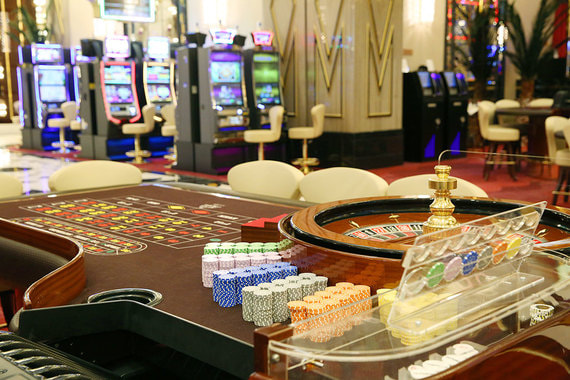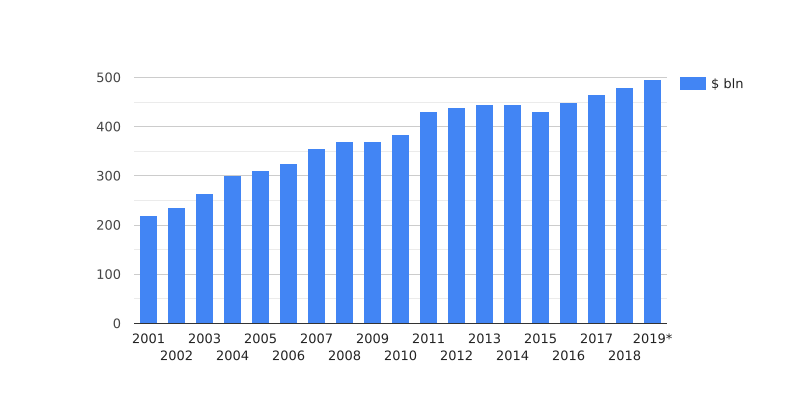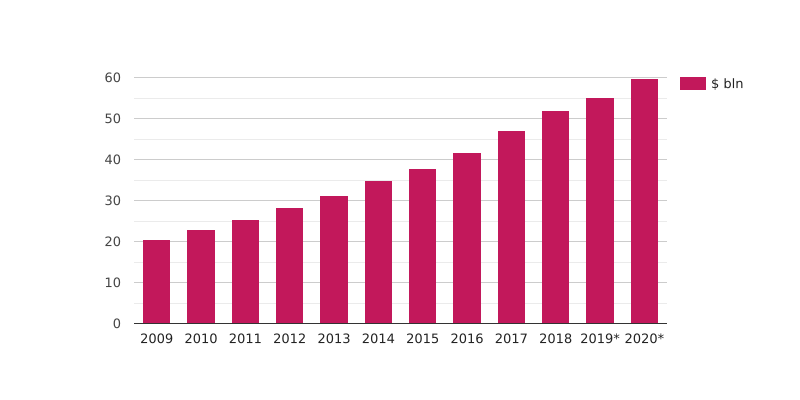
Casinos and slot machines have shifted to the Internet and clandestine operations and are still flourishing.
Back in time a decade ago, gambling was effectively prohibited in Russia – designated regions were designated for gambling purposes. However, Russian gambling enthusiasts have either taken their activities underground or are now patronizing legal casinos in adjacent nations.
“Should I have remained working in St. Petersburg, I would have surely restrained these casinos” – was a statement made by Russian President Vladimir Putin as documented in a book about him released in 2000 – “From the first person. Conversations with Vladimir Putin.” Just before this, on December 31, 1999, the first president of Russia, Boris Yeltsin, declared his resignation and the appointment of Putin as the acting head of state.
This pertains to the reform that he endeavored to implement while serving in the administration of St. Petersburg. The city authorities had implemented stringent oversight on the gambling sector. A designated municipal entity acquired a 51% stake in all gambling establishments. The authorities anticipated receiving dividends, yet it did not come to fruition. “At the moment when we were projecting profits and deliberating on where it could be allocated – towards urban economic advancement, supporting the social sphere – they [the proprietors of gambling establishments] scoffed at us and displayed losses,” the book recounts.
Post his assumption of the presidential position, Putin equated gambling with “alcoholism in the populace” and recommended a complete ban on gambling in public venues. Yet, the proprietors of slot machines, colloquially known as “one-armed bandits” in the early 2000s, also bear some responsibility. That era was characterized by the predominant presence of slot machines, several industry participants recollect. In residential areas, slot machines were placed in apartment complexes and grocery stores, which of course, yielded no positive outcomes.
Entirely Zonal
In October 2006, Putin submitted a bill to the heads of Duma factions regarding the relocation of all gambling establishments to dedicated zones. Since July 1, 2009, gambling has exclusively been permitted in four demarcated regions in Russia: “Azov City” on the border of the Krasnodar Territory and the Rostov region (subsequently terminated), “Siberian Coin” in Altai, “Amber” in the Kaliningrad region, and “Primorye” in the Far East. In July 2014, Putin authorized a law for the establishment of gaming hubs in Crimea and Sochi.
During the 2000s, the gambling industry was excessively lucrative: in terms of profitability, it fell marginally short of the chemical sector and significantly exceeded metallurgical and petroleum sectors. The EBITDA margin of one of the group’s leading players, Ritzio Entertainment Oleg Boyko, was approximated at 50% in the first six months of 2008 by Renaissance Capital. Other gambling operators did not reveal their figures: not Storm International, nor the Korston group of enterprises, nor even the most extensive operator of slot machine parlors, Jackpot, established in 1998 by decree of Moscow Mayor Yuri Luzhkov and under the oversight of his deputy, Iosif Ordzhonikidze.
In 2005, analysts at PricewaterhouseCoopers approximated the turnover of the Russian gambling market at nearly $6 billion. In 2006, tax proceeds to various budget levels from gambling totaled 31.1 billion rubles, whereas in 2010, that figure plummeted to a mere 65.8 million rubles. This marked the initial complete year of a comprehensive gambling ban, except for the specified zones, as recalled by Nikolai Oganezov, the chairman of the Subcommittee of the Chamber of Commerce and Industry of Russia on bookmaking and sweepstakes. From January to October 2018, fiscal revenues from gambling amounted to 1.6 billion rubles.
Ascension and Descent of Azov City
Azov City was the pioneer to inaugurate in February 2010. A passageway of lanterns and three simulated palm trees strategically illuminated a solitary edifice in the absolute darkness of the snow-clad southern Russian steppe. At intervals of 200 meters, traffic wardens stationed themselves all along the thoroughfare to the casino, guiding the way for the visitors. This marked the inauguration of the inaugural casino in Azov City – the Oracle by Rashid Taymasov under the Kazan Royal Time Group. Situated in an open expanse 50 km away from the town of Yeysk, on the cusp of the Rostov Region and the Krasnodar Territory, the Azov City enclave witnessed the commencement of the casino in conjunction with a 90-room lodging facility, amounting to approximately 2.3 billion rubles. Subsequently, Taymasov encountered insolvency as his betting enterprises were bankrolled by Tatfondbank, which faced license revocation from the Central Bank in 2017.
Dim Areas
Efforts to reach out to the investor representatives and the proprietors of Magic Crystal and Sobranie were unsuccessful.
Eastward Outlook
However, the Primorye locality proved to be prosperous. The initial casino, located 50 km away from Vladivostok, was inaugurated in 2015, according to Konstantin Shestakov, who serves as the Director of the Tourism Department in the Primorsky Territory. Ji 1 Entertainment was the primary investor, subsequently managed by Melco Crown entities under the supervision of Hong Kong magnate Lawrence Ho. The complex constructed comprised a hotel and entertainment hub with the Tigre de Cristal Casino, a hotel with 121 rooms, and dining establishments. Investments totaled $220 million, highlighted by Shestakov. A year ago, the management of the facility transitioned to the Taiwanese First Steamship. Shestakov announced that First Steamship plans to establish the second phase of the project featuring a casino and a shopping precinct with duty-free stores, with an announced investment of $500 million. The zone is demonstrating favorable outcomes, attracting new investors due to the exponential increase in international tourists visiting the region, according to Shestakov. During the initial nine months of 2018, the zone welcomed over 350,000 visitors from China and South Korea. By the conclusion of 2017, the primary establishment in the gambling zone contributed over 448 million rubles to the state treasury.
Inquiries made to the representatives of First Steamship and Tigre de Cristal remained unanswered by Vedomosti.
The infrastructures of the Cambodian Naga Corp (a project involving a hotel and entertainment complex with a casino, investments surpassing 11 billion rubles) are presently under construction. This summer, Shambala came on board with the venture, as indicated by Shestakov, expressing their interest in constructing a hotel and a casino worth 7 billion rubles. At the current stage, they are awaiting the construction permit, confirms the official, Smolentsev. Recently, South Korean entity Dongnam Industry Co. revealed its plans to construct a golf course valued at 2 billion rubles.
Tkachev-Polyana
“The necessary infrastructure for establishing such a zone was put in place in preparation for the Olympic Games, and everything can be arranged efficiently. There is no requirement to develop any additional structures,” Deputy Prime Minister Dmitry Kozak supported the concept. The region offers conducive conditions for casino development, utilizing the existing transportation network following the 2014 Olympics and securing year-round tourist activity, as attested by Oganezov.
Belarus Seized the Opportunity
The gaming sector in Belarus experienced significant growth post-2009, when it was prohibited in Russia. As per the Ministry of Taxes and Duties of Belarus, the revenue generated for the state budget from gambling nearly doubled in Russian ruble terms from 2009, rising from 700 million rubles to 1.35 billion in 2017. Gambling, if managed prudently, has the potential to serve as an additional revenue stream for the budget, facilitate job creation, and attract tourists and investments to Belarus, argued the Head of state Alexander Lukashenko in 2010. He emphasized the need to proceed “with great care, thought, and competence, for the betterment of the nation”: “Given the ongoing alterations in Russian and Ukrainian legislation, we are well-positioned to lead in this field.”
The primary gaming hub in the Caucasus region is Georgia, identified in a report by Colliers. Following independence in 1991, the gaming business in the country operated without significant constraints. Business turnover experienced rapid expansion in the past decade, hitting 4 million lari ($1.71 million) in 2016, and reaching 3.75 million lari ($1.52 million) in the initial three quarters of 2017. Since 2006, the sector has been subject to state regulation, particularly in terms of increased gambling taxes and licensing requirements.A charge has been imposed. Businessman David Yakobashvili, co-owner of Adjara Casino in Tbilisi, asserts, “The market size is limited, and the tax rates are high.” The daily visitor count is low, with around 300-400 guests, and the average wager ranges from 5-10 lari ($1.9-3.8). Yakobashvili mentions that the majority of guests are from Iran, Turkey, and Azerbaijan, as gambling is prohibited in their countries.
The establishment of a gambling precinct in Sochi and the discontinuation of Azov City was vigorously advocated by Alexander Tkachev during his tenure as governor of Krasnodar Territory. Subsequently, the Krasnaya Polyana gambling zone emerged within the Gorki Gorod resort area, which previously housed media facilities, trampolines, and the Gornaya Karusel ski complex during the 2014 Winter Olympics. Gorki Gorod was developed by the disgraced brothers Magomed and Ahmed Bilalov, with a loan exceeding 50 billion rubles from VEB. Due to construction delays, they were ousted from the project, and Sberbank had to finalize the construction.
In 2015, Sberbank divested 96.91% of NAO Krasnaya Polyana’s shares for 35 billion rubles to Resort Plus, affiliated with the Tkachev family. According to SPARK-Interfax, Business Resort holds 99% of the company. Until April 2018, Business Resort was under the ownership of Anna Prudchenko, formerly a Board of Directors member at Gallery Krasnodar. The construction of the Gallery involved Intercomplex, with Tkachev, his daughter Tatiana, and son-in-law Roman Batalov as co-owners. Vadim Trukshin, Business Resort’s CEO, owns the remaining 1% of Resort Plus. He also serves on the Board of Directors of Sochi Park JSC, where Batalov holds a senior managerial position.
LLC “Domain” operates the Sochi gambling zone, overseeing Sochi Casino and Bonus slot machine hall, as indicated by a Krasnaya Polyana representative. Tkachev is also associated with this operator, but Vedomosti’s attempts to reach them were unsuccessful. In January, the “Boomerang” hotel and casino complex opened at Rosa Khutor resort in Sochi, managed by “Domain” per an Interros representative. The gambling zone has attracted over 850,000 visitors from 146 nations in two years.
Casinos in Crimea are anticipated to launch in September 2019, with an investor prepared to inject 8 billion rubles, according to the region’s head, Sergey Aksenov. The precise investor remains undisclosed. In December 2018, authorities in Crimea identified a site for construction near Yalta, in the village of Katsiveli.
Russian Gambling Landscape
Oganezov argues that the ban on gambling did not yield positive outcomes. He considers the original idea of gambling zones for developing remote and economically challenged areas as unsuccessful, emphasizing the necessity of robust transportation links, consistent tourist traffic, and a large urban population nearby for successful gambling ventures. Storm International’s representative, Lavrenty Gubin, notes that ventures in the zones posed excessive risks, citing the closure of the formerly thriving Sea of Azov gambling zone, resulting in wasted investments and efforts from investors.
Meanwhile, underground gambling turnover has continued to thrive without legal constraints.Today’s market size surpasses the total turnover from before the ban, according to three ex-managers from gambling corporations who spoke to Vedomosti. The gambling sector has shifted to the web and underground, becoming even more lucrative due to the evasion of taxes and the broader reach via the internet, as explained by Oganezov.
The Shadow Play
Despite the decrease in offline casino options in Russia, the players have not vanished completely, claims Oganezov: They continue to engage in underground and online gambling, as well as in neighboring nations.
Previous Players Amidst the Absence of Zones
Oleg Boyko
Ritzio Entertainment downsized its gambling operations in Russia, where it managed over 300 establishments, including four casinos and a chain of Vulkan halls, Million slot machines, and X-time. Gambling activities in Russia have ceased entirely, stated Larisa Shishkina, a spokesperson for the entrepreneur, but internationally – in Germany, Italy, Croatia, Romania, and Belarus – the corporation operates slot halls. At present, Shishkina reveals that Boyko’s primary focus is on Finstar, which specializes in investments within digital credit enterprises.
Boris Belotserkovsky
Boyko’s former associate at Ritzio Entertainment, Boris Belotserkovsky, prepared in advance for the decline of the Russian gambling industry: he commenced the production of vending machines and payment terminals back in 2006 and is now the proprietor of the largest vending systems manufacturer “Unikum”. Currently, his firm manages a network of 15,000 vending machines.
Michael Botcher
A decade ago, entrepreneur Michael Botcher’s Storm International possessed five of Moscow’s prominent casinos – New York, Carnival, Udarnik, Jazz Town, and Shangri La, along with a series of slot machine halls named “Super Slots”. Post the gambling prohibition, the organization attempted to repurpose the facilities for restaurants and clubs initially; however, these ventures failed, revealed Gubin from Storm International. Consequently, the premises were either leased or sold. Nonetheless, Storm International embarked on an active international expansion: including ten slot halls in Germany, Shangri La Casino in Belarus, Armenia, Georgia, and Latvia.
Prior to the implementation of the law, some gambling hall proprietors retreated into secrecy, according to staff members from formerly active Moscow casinos. Access is granted based on recommendations to these secretive locations, resembling an exclusive club where everyone is familiar with one another, as shared by one of Vedomosti’s interviewees. Authorities frequently uncover illicit casinos with key hotspots identified in Moscow, the Moscow region, St. Petersburg, and the Krasnodar Territory. TASS, citing the Main Investigative Department of the Investigative Committee of the Russian Federation in Moscow, reported that the revenue from illicit gambling in Moscow alone exceeded 350 million rubles in 2018. As per reports, during the first nine months of 2018, 1,149 criminal cases were commenced nationwide for organizing illegal gambling activities.
The internet has emerged as another loophole, where gaming activities within the .ru domain are legally forbidden. Nevertheless, companies register their websites in alternate domain zones. Despite blockage requirements, owners face penalties and potential jail time. From November 2015 to November 2018, Roskomnadzor reported the blocking of over 90,000 online casino and betting club sites (based on Federal Tax Service decisions) and an additional 13,000 sites through court judgments.
Artem Kozlyuk, the chief of the Roskomsvoboda public organization, points out the inefficacy of website blocking, as it can easily be circumvented. Notable platforms like Azino777 and Admiral X are widely recognized. In the online video advertising sector, Azino777 emerged as the biggest advertiser in the first half of 2018 based on Mediascope research findings. Although Azino777’s primary website and numerous related platforms are in the Roskomnadzor roster with restricted access in the RuNet, Vedomosti’s correspondent effortlessly located multiple Azino777 and Admiral X sites online, some even within the .ru domain. There was no response to Vedomosti’s requests from Azino777 and Admiral X representatives.
Gambling market worldwide

* forecast
Online gambling market worldwide

* forecast


